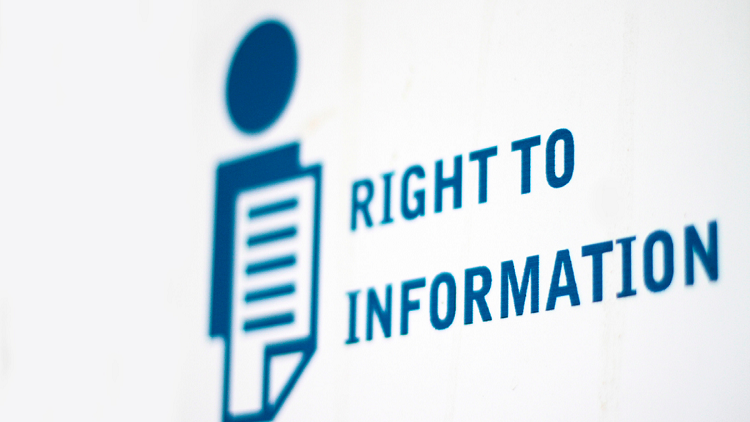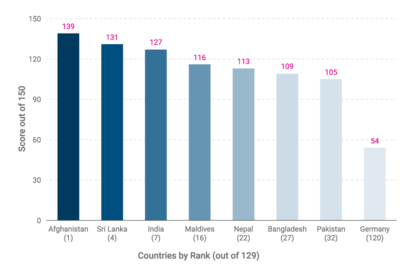RTI
Right to Information

The first Right to Information (RTI) law was enacted by Sweden in 1766 to access the information held by the king, following which 121 countries have adopted their own comprehensive RTI laws. According to Article 19, 90% of the world’s population now has access to an RTI law or policy. Several international human rights instruments, like the Universal Declaration of Human Rights and the International Covenant on Civil and Political Rights, recognize the importance of Access to Information.
In 2002, Pakistan became the first country in South Asia to introduce the RTI act. According to Global Right to Information Rating Map, all countries in the region (except unranked Bhutan) are ranked among the top 40 countries for their RTI acts. South Asian countries have developed strong RTI laws to enable citizens to request any document from any public authority. This piece will focus on the shortcomings of the laws in each country.
Afghanistan
Afghanistan provides the strongest constitutional and legislative rights in the world, enabling it to hold the top position in the RTI ranking. Currently, the only possible area of further improvement is ensuring that the Access to Information Commission is provided with complete independence and the ability to create a system to redress the public authorities, which fail in their statutory duties to disclose the requested information. The current political situation in the country has the potential of hampering the working of the commission.
Sri Lanka
Sri Lanka has an independent Right to Information commission that has ensured that the intent of the RTI act is maintained. Exceptions include communications between professionals, the privileges of Parliament and trade agreements. Sri Lanka has invoked an excessive number of exemptions in rejecting RTI requests, with no mention of the remedial actions taken or sanctions imposed when the public authority has failed to disclose the requested information.
India
India’s RTI law allows citizens to file follow-up appeals if their requested information is rejected. India has been constantly expanding blanket exceptions to reject requests in the name of security, research, intelligence and economic bodies. The number of RTI applications rejected annually has risen in the last 7 years. Also, the Indian legal framework also does not allow access to information held by private entities that perform a public function. According to a report published by Transparency International India, out of 917,009 RTI applications received in 2016-17 60,428 applications were rejected.
Maldives
The Maldives has a fairly strong RTI law, with beneficial features across the board. The law’s main weaknesses lie in its requirement of disproportionate amounts of information from the petitioner in order to make requests and in its exceptions, which contain unduly vague grounds for refusing to provide information to the petitioner. These weaknesses can override the good public interest that generally lies in the foundation of the law.
Nepal
Nepal’s law allows its citizens to request any information from any branch of the state: legislative, executive or judiciary. However, its biggest weakness is that the law limits information requests by mandating that the citizens must present a reason for the information requested, which can be an unnecessary deterrent to citizens.
Bangladesh
Bangladesh’s RTI law empowers its Information Commission with a strong set of promotional measures. The law also has a broad scope to cover public authorities, although the blanket exceptions for police, security, and intelligence services weaken the law. Various laws in Bangladesh can override the RTI law, infringing on citizens’ access to information.
Pakistan
Pakistan’s Freedom of Information Ordinance focuses on making the government accountable to its people by providing access to information. However, the ordinance requires citizens to provide a reason for seeking information; this discourages citizens from freely using the right provided to them. The law also restricts the use of the information obtained to the purpose stated in the application.
Bhutan
The National Assembly of Bhutan passed a right to information bill in 2014. Article 7 of the Constitution guarantees every Bhutanese access to information as a fundamental right. The act reserves the right to refuse a piece of requested information under the bill titled ‘Exempt Official Information’.

Conclusion
In the absence of proper Open Government Data, an RTI law empowers citizens to access information from the government. An effective RTI system can ensure that disconnect between the citizen and information is addressed by providing the requested information to individuals.
South Asian countries should ensure that the restrictions put on their RTI laws to protect the interest of the nation are not exploited to withhold information. It is vital for governments to take necessary steps to ensure that citizens are well informed. The free flow of information is maintained to guarantee that a nation’s democratic principles are upheld.
